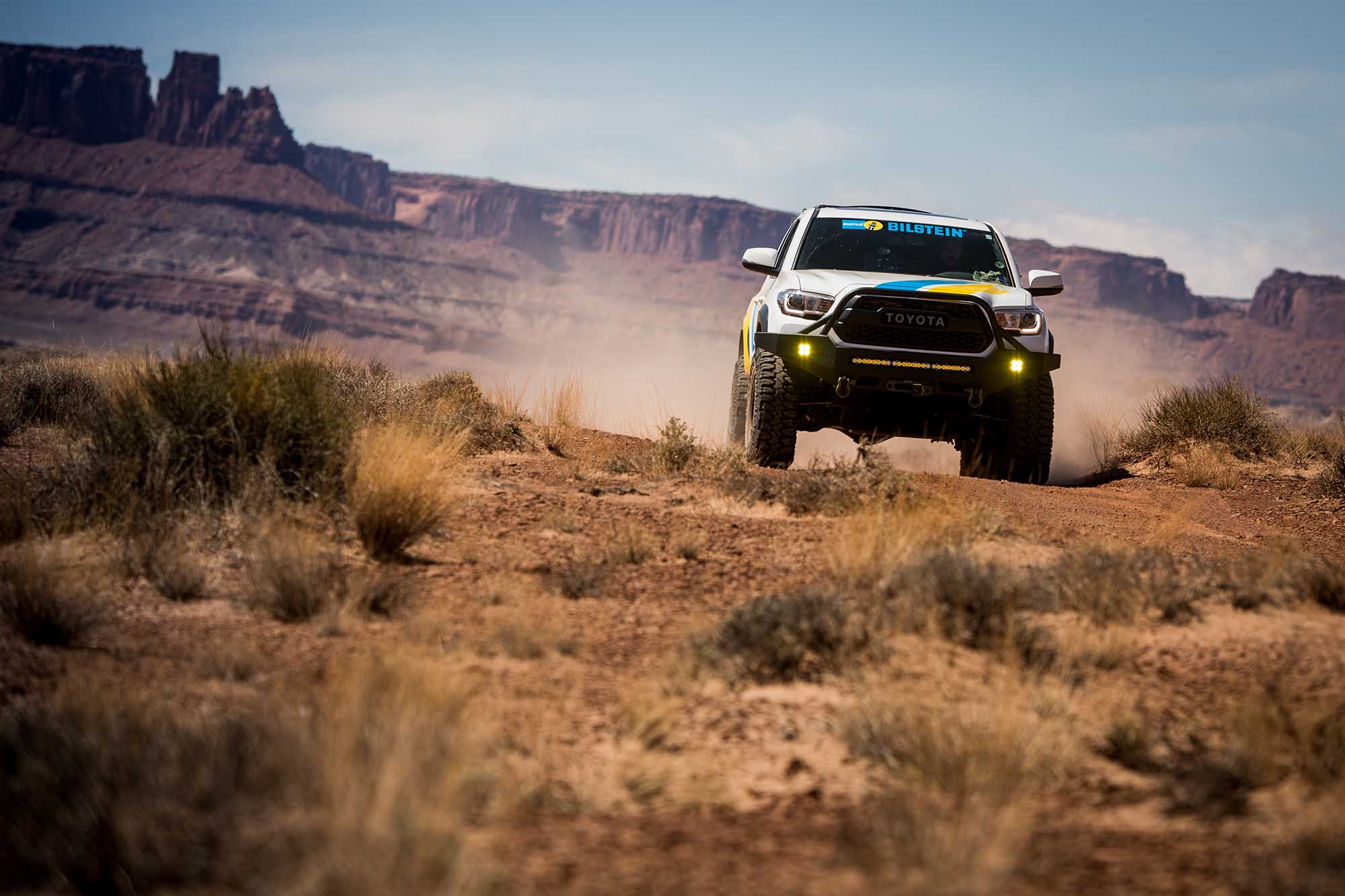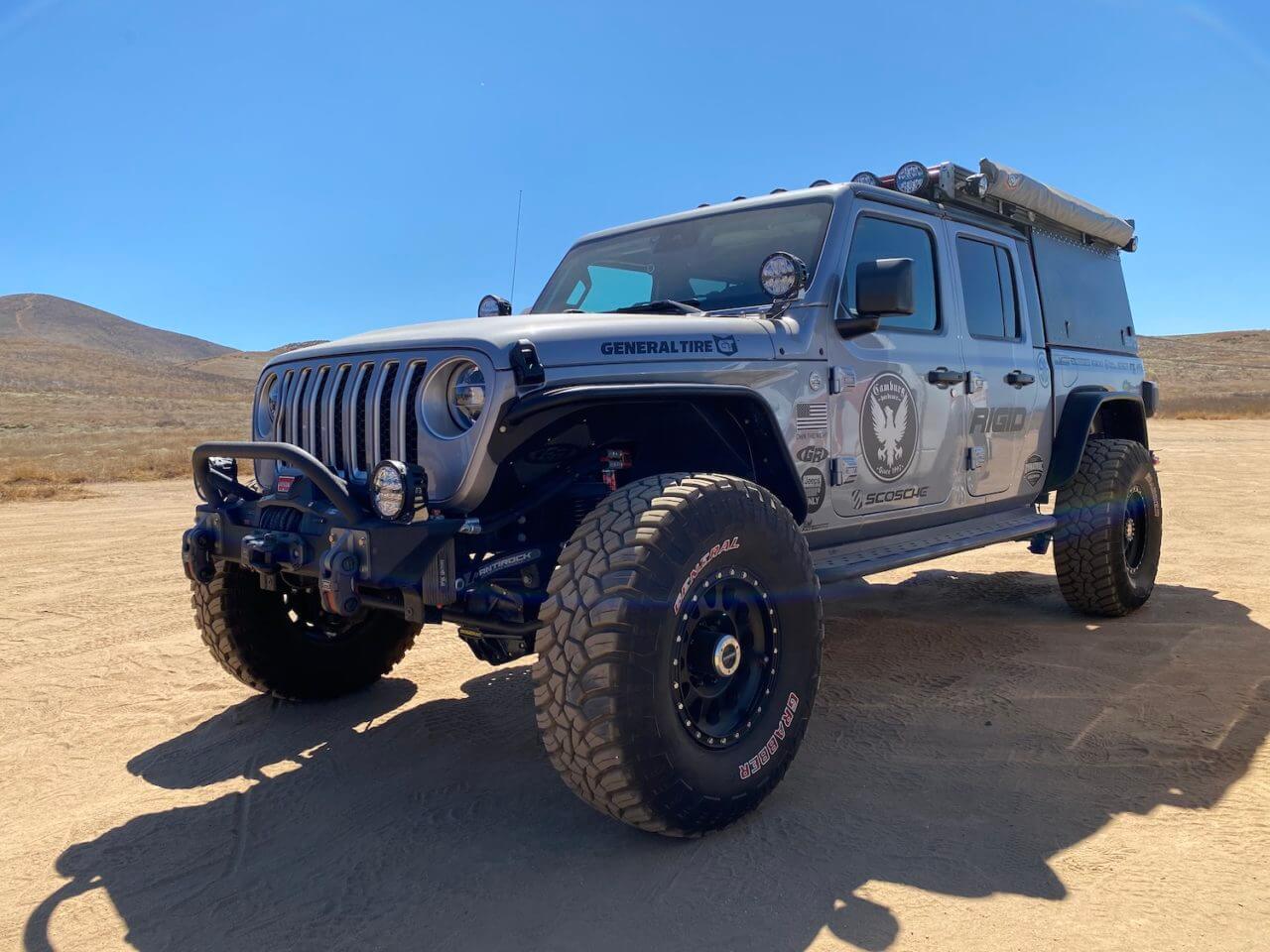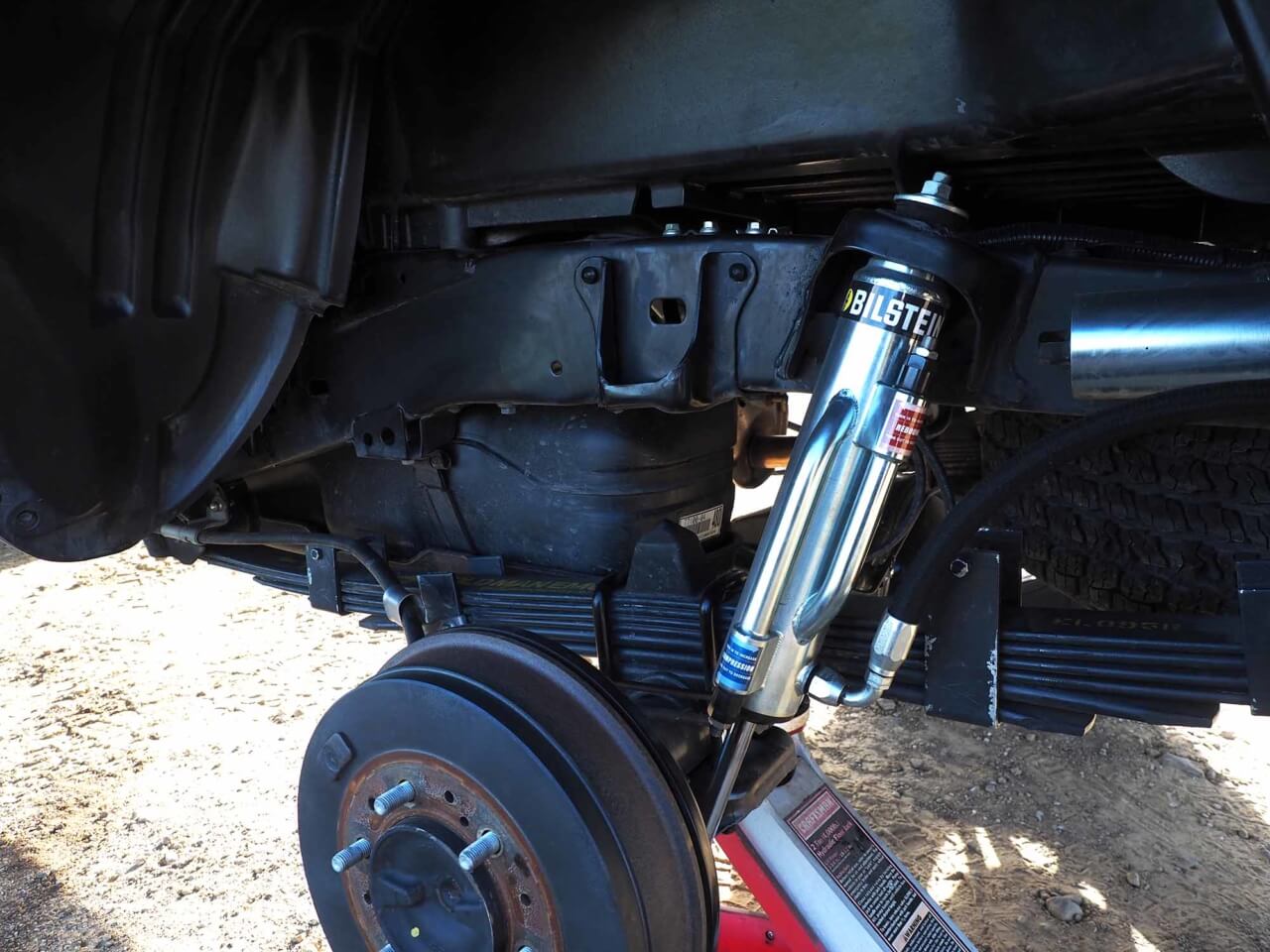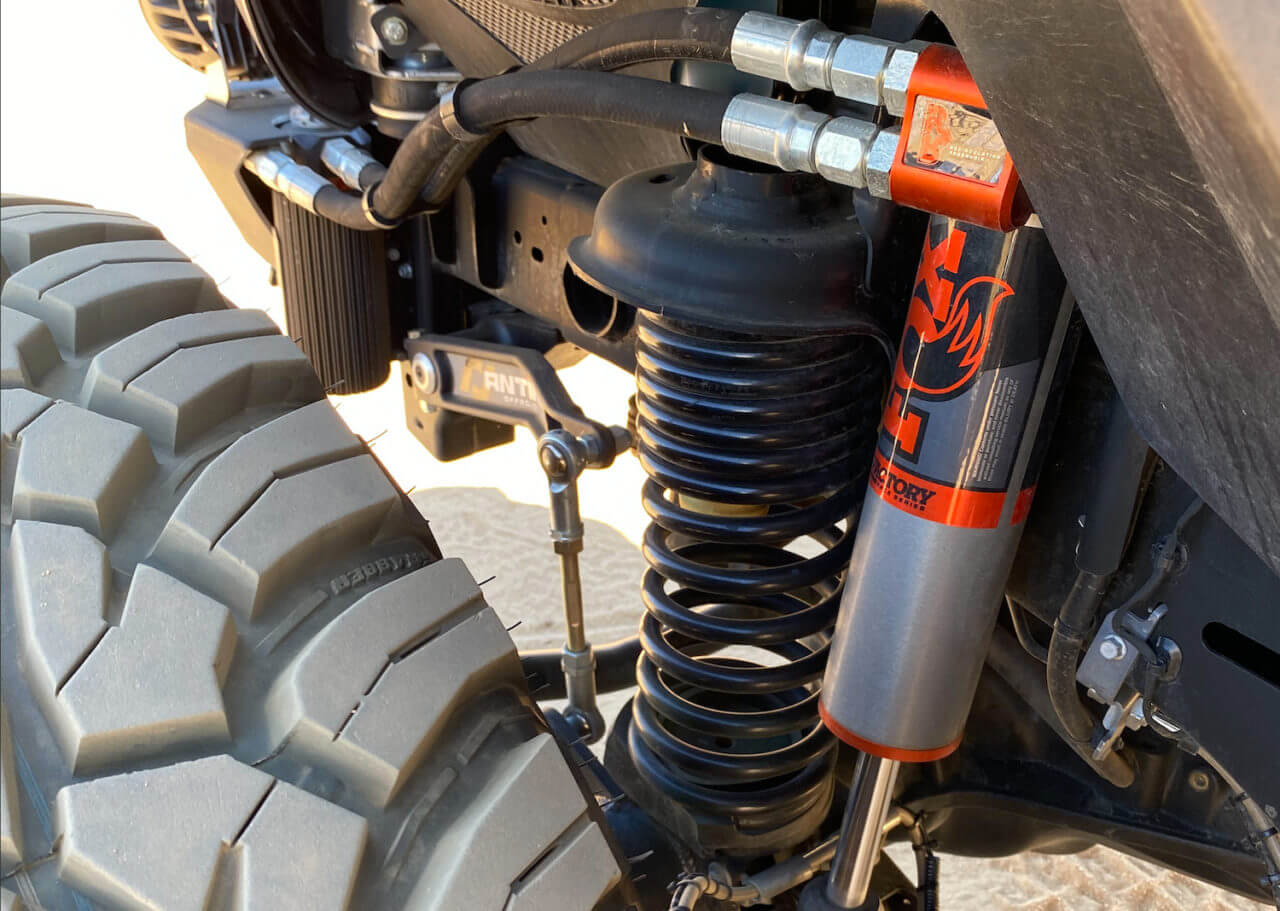
If you’re looking to improve the off-road prowess, comfort, or handling of your 4×4, a suspension replacement is one of the best ways to do so. The Bilstein 5100 and Fox 2.0 Performance series options are some of the most popular performance shock absorbers you can get for your off-road vehicle. While they’re both impressive in their own right, each outperforms the other in certain aspects. There’s a lot of debate on which of these is the better option, but the truth is they’re both designed to cater to different requirements.
In this article, we’ll compare the key features of both, the suspension replacement cost, and help you decide which is best for you.

Price Point Comparison
A significant difference between the Bilstein 5100 and Fox 2.0 Performance shocks, and one that might be the deciding factor for you, is the suspension replacement cost. The Fox units are notably more expensive than the Bilstein shocks — sometimes costing twice as much! For instance, consider the front suspension replacement on a Ford F-150. Prices for a single Bilstein 5100 series shock start at $103.00, while a similar unit from the Fox 2.0 Performance series carries a $199.95 price tag.
The disparity in cost comes down to multiple factors, including their construction. While the Bilstein shocks are made from zinc-plated galvanized steel, the Fox 2.0 shocks feature a lighter, CNC machined clear anodized aluminum one-piece body.

Ride Suspension Comparisons
The Bilstein 5100 series of shock absorbers feature a 46 mm monotube with neoprene rubber bushings. On the other hand, the Fox 2.0 Performance shocks are slightly thicker, made from a 50.6 mm monotube, and come with nitrile rubber bushings. Both shocks come with directly compatible mounting hardware, so they will be a direct fit onto your vehicle. You won’t need any additional hardware or special tools to carry out a suspension replacement.
The Bilstein 5100 is also available in a Ride Height Adjustable variant that you can choose instead of coil spring spacers. With the ability to lift your vehicle by up to 2.75 inches, they’re a perfect option for larger trucks or SUVs that carry large loads or need the added height. On the other hand, the Fox 2.0 Performance shocks offer up to 1.5 inches of lift.
The Fox 2.0 Performance shocks use technology derived from the company’s racing products. The aluminum body aids heat dissipation, ensuring that the shocks perform optimally even in more demanding situations that cause the internal suspension fluids to heat up. Poor heat dissipation will affect the viscosity of the suspension fluid, affecting performance. Suspension fluid, like most oils, becomes thinner as it increases in temperature, and if it heats up too much, it will become too thin, resulting in a spongy ride.
Another important factor worth remembering is that the Fox 2.0 Performance shocks come with a nitrogen cartridge that can be refilled when required. So, if you ever find that its performance isn’t on par with what it was like when new, you can have the cartridge refilled instead of investing in an all-new pair, drastically cutting down on suspension replacement cost.
The rest of the Fox 2.0 Performance shocks are rebuildable, too, so if you make other significant modifications to your vehicle that alter its weight or performance, you can adjust the shock absorber’s tuning to adapt to the new requirements. So, even though it’s a higher suspension replacement investment up front, the Fox 2.0 Performance shocks can conceivably last as long as your vehicle.

Comfort and Handling
The Bilstein 5100 and Fox 2.0 Performance shocks are set up differently. If you were to test them out on the exact vehicle and subject them to identical driving scenarios, you’d find that the Bilstein shocks are tuned to be on the firmer side. This translates to improved steering feedback, reduced body roll, and a more stable ride overall. On the flip side, you will feel potholes and speed bumps more than you would with the Fox 2.0 Performance shocks.
So if your vehicle is going to be spending most of its time on tarmac, or if it’s going to carry heavy loads or tow a trailer, the Bilstein will better suit your requirements.
As the paragraph above suggests, the Fox 2.0 is designed to tackle more challenging off-road terrain. With a slightly softer ride, it does a better job at absorbing undulations, potholes, and rocky terrain. While it will likely offer better on-road performance than the stock hardware on your car, you will notice a tad more body roll if you compare it with the Bilstein units back-to-back.

Get the Best Suspension Hardware for Your 4×4
To conclude, the Fox 2.0 is the better suspension if you’re looking to improve the off-road prowess of your 4×4. It’s more expensive than the Bilstein 5100 series of shocks, but it’s likely to last longer, given its re-buildability. If you simply want a step up from the stock suspension on your truck or SUV and are not looking for anything off-road-oriented, the Bilstein 5100 shocks will serve to be an excellent suspension replacement.
The suspension on your vehicle can significantly affect how it handles and performs. This is true for everyday driving and more recreational applications like extreme off-roading. Either way, the proper hardware can drastically improve your vehicle’s capabilities.
If you’re looking to perform a suspension replacement, order your parts from 4 Wheel Parts. With an extensive portfolio of suspension hardware, from complete systems and lift kits to individual accessories and conversion kits, you can find it all at under one physical or virtual rooftop. You can also find several other OEM and aftermarket parts for your truck or SUV on the site using your vehicle’s year, make, model, and variant.



2